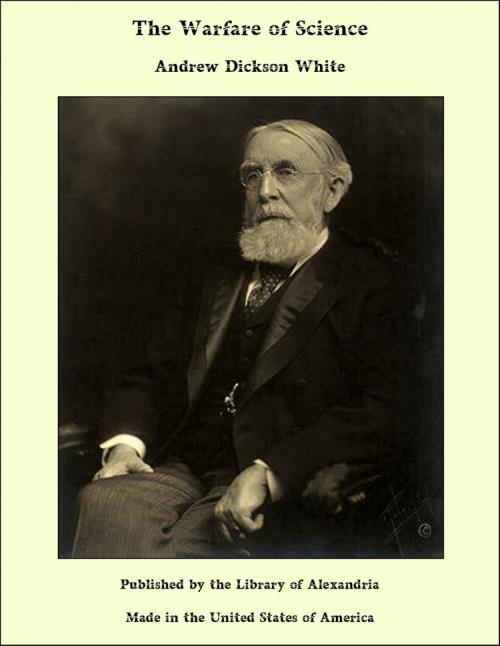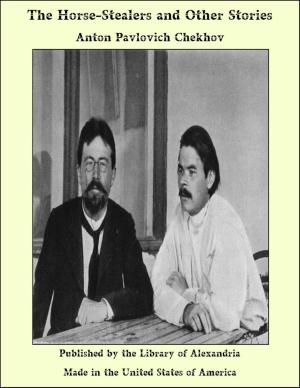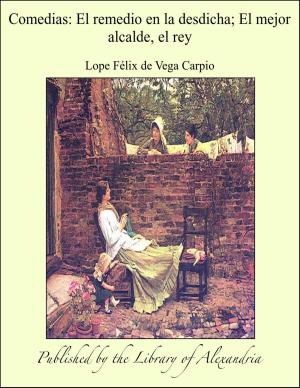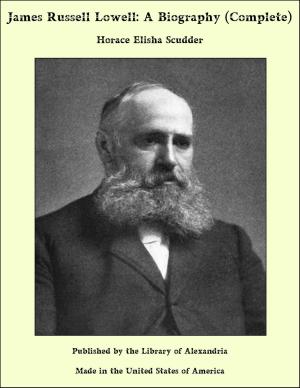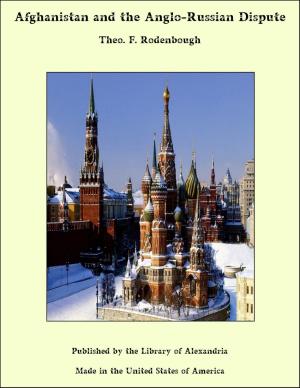| Author: | Andrew Dickson White | ISBN: | 9781613106402 |
| Publisher: | Library of Alexandria | Publication: | March 8, 2015 |
| Imprint: | Language: | English |
| Author: | Andrew Dickson White |
| ISBN: | 9781613106402 |
| Publisher: | Library of Alexandria |
| Publication: | March 8, 2015 |
| Imprint: | |
| Language: | English |
I purpose to present an outline of the great, sacred struggle for the liberty of science—a struggle which has lasted for so many centuries, and which yet continues. A hard contest it has been; a war waged longer, with battles fiercer, with sieges more persistent, with strategy more shrewd than in any of the comparatively transient warfare of Cæsar or Napoleon or Moltke. I shall ask you to go with me through some of the most protracted sieges, and over some of the hardest-fought battle-fields of this war. We will look well at the combatants; we will listen to the battle-cries; we will note the strategy of leaders, the cut and thrust of champions, the weight of missiles, the temper of weapons; we will look also at the truces and treaties, and note the delusive impotency of all compromises in which the warriors for scientific truth have consented to receive direction or bias from the best of men uninspired by the scientific spirit, or unfamiliar with scientific methods. My thesis, which, by an historical study of this warfare, I expect to develop, is the following: In all modern history, interference with science in the supposed interest of religion, no matter how conscientious such interference may have been, has resulted in the direst evils both to religion and to science—and invariably. And, on the other hand, all untrammeled scientific investigation, no matter how dangerous to religion some of its stages may have seemed, for the time, to be, has invariably resulted in the highest good of religion and of science. I say "invariably." I mean exactly that. It is a rule to which history shows not one exception. It would seem, logically, that this statement cannot be gainsaid. God's truths must agree, whether discovered by looking within upon the soul, or without upon the world. A truth written upon the human heart to-day, in its full play of emotions or passions, cannot be at any real variance even with a truth written upon a fossil whose poor life ebbed forth millions of years ago.
I purpose to present an outline of the great, sacred struggle for the liberty of science—a struggle which has lasted for so many centuries, and which yet continues. A hard contest it has been; a war waged longer, with battles fiercer, with sieges more persistent, with strategy more shrewd than in any of the comparatively transient warfare of Cæsar or Napoleon or Moltke. I shall ask you to go with me through some of the most protracted sieges, and over some of the hardest-fought battle-fields of this war. We will look well at the combatants; we will listen to the battle-cries; we will note the strategy of leaders, the cut and thrust of champions, the weight of missiles, the temper of weapons; we will look also at the truces and treaties, and note the delusive impotency of all compromises in which the warriors for scientific truth have consented to receive direction or bias from the best of men uninspired by the scientific spirit, or unfamiliar with scientific methods. My thesis, which, by an historical study of this warfare, I expect to develop, is the following: In all modern history, interference with science in the supposed interest of religion, no matter how conscientious such interference may have been, has resulted in the direst evils both to religion and to science—and invariably. And, on the other hand, all untrammeled scientific investigation, no matter how dangerous to religion some of its stages may have seemed, for the time, to be, has invariably resulted in the highest good of religion and of science. I say "invariably." I mean exactly that. It is a rule to which history shows not one exception. It would seem, logically, that this statement cannot be gainsaid. God's truths must agree, whether discovered by looking within upon the soul, or without upon the world. A truth written upon the human heart to-day, in its full play of emotions or passions, cannot be at any real variance even with a truth written upon a fossil whose poor life ebbed forth millions of years ago.
